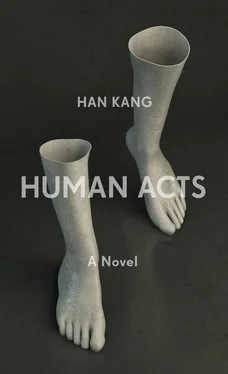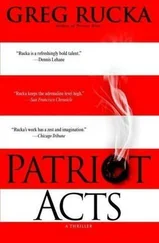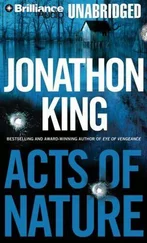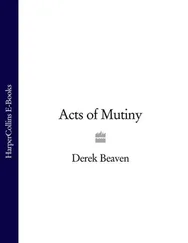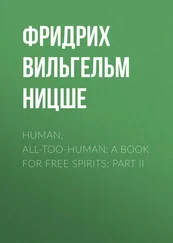Han Kang - Human Acts
Здесь есть возможность читать онлайн «Han Kang - Human Acts» весь текст электронной книги совершенно бесплатно (целиком полную версию без сокращений). В некоторых случаях можно слушать аудио, скачать через торрент в формате fb2 и присутствует краткое содержание. Год выпуска: 2016, Издательство: Portobello Books, Жанр: Современная проза, на английском языке. Описание произведения, (предисловие) а так же отзывы посетителей доступны на портале библиотеки ЛибКат.
- Название:Human Acts
- Автор:
- Издательство:Portobello Books
- Жанр:
- Год:2016
- ISBN:нет данных
- Рейтинг книги:4 / 5. Голосов: 1
-
Избранное:Добавить в избранное
- Отзывы:
-
Ваша оценка:
- 80
- 1
- 2
- 3
- 4
- 5
Human Acts: краткое содержание, описание и аннотация
Предлагаем к чтению аннотацию, описание, краткое содержание или предисловие (зависит от того, что написал сам автор книги «Human Acts»). Если вы не нашли необходимую информацию о книге — напишите в комментариях, мы постараемся отыскать её.
Human Acts
Human Acts — читать онлайн бесплатно полную книгу (весь текст) целиком
Ниже представлен текст книги, разбитый по страницам. Система сохранения места последней прочитанной страницы, позволяет с удобством читать онлайн бесплатно книгу «Human Acts», без необходимости каждый раз заново искать на чём Вы остановились. Поставьте закладку, и сможете в любой момент перейти на страницу, на которой закончили чтение.
Интервал:
Закладка:
The book was a non-fiction treatise examining the psychology of crowds. The author hailed from the UK, and most of the examples she had selected were from modern European history. The French Revolution, the Spanish Civil War, the Second World War. The translator had himself elected not to include the chapter on the 1968 student movement, believing that it would only serve to jeopardise the rest of the book in the eyes of the censors. He’d still translated this chapter, though, for inclusion in a full and revised edition at some point in the future. In the introduction, he wrote:
The decisive factor dominating the morality of the crowd has not yet been clearly identified. One point of interest is the emergence in situ of a particular ethical fluctuation separate from the moral standard of the individuals who constitute the crowd. Certain crowds do not blench at the prospect of looting, murder and rape, while on the other hand, others display a level of courage and altruism which those making up that same crowd would have had difficulty in achieving as individuals. The author argues that, rather than this latter type of crowd being made up of especially noble individuals, that nobility which is a fundamental human attribute is able to manifest itself through borrowing strength from the crowd; also, similarly, that the former case is one in which humanity’s essential barbarism is exacerbated not by the especially barbaric nature of any of the individuals involved, but through that magnification which occurs naturally in crowds .
The censors had scored through four lines in the paragraph which followed that one. Bearing that in mind, the question which remains to us is this: what is humanity? What do we have to do to keep humanity as one thing and not another? Eun-sook could remember the precise thickness of the line which had been drawn through these sentences. She could recall the translator’s fleshy neck, his shabby navy jumper, his sallow complexion; his long, blackened fingernails constantly fumbling with the glass of water. But she still couldn’t picture his face to herself with any precision.
She closed the book and waited. Turned to face the window, and waited for darkness to fall.
She had no faith in humanity. The look in someone’s eyes, the beliefs they espoused, the eloquence with which they did so, were, she knew, no guarantee of anything. She knew that the only life left to her was one hemmed in by niggling doubts and cold questions.
The fountain had been dry that afternoon. Gun-toting soldiers were hauling fresh bodies over to the wall in front of the Provincial Office. They dragged them by the legs, so that the backs of their heads bumped and scraped against the ground, then tossed them next to the bodies that had already been dumped there. Some of the soldiers had had a bright idea for increasing the efficiency of this process: a small group was marching into the Provincial Office’s inner yard, each holding a corner or edge of a huge waterproof tarp on which the corpses of a dozen people were being transported in one go. When Eun-sook had walked by, unable to prevent her eyes from widening at the sight, three soldiers rushed over and aimed their guns at her chest. Where are you going? Just home. I’ve been visiting my aunt; she’s not well . Her voice had been cool and steady, but her upper lip trembled as she spoke.
She left the square on their orders, making an effort to regulate her steps. When she reached Daein market, a huge tank came roaring down the main road. They want to show everyone that it’s all over , she’d thought to herself, almost absent-mindedly. That all the protestors have been killed .
The neighbourhood where she lived with her parents, though close to the university district, was so utterly devoid of human life it was as though a plague had ravaged it. When she rang the bell, her father instantly came running out, only unlocking the main gate for the brief time it took to usher her inside. He got her to hide up in the kitchen loft, then moved the tall cupboard over beneath the entrance so that it wouldn’t attract anyone’s notice. As morning wore into afternoon, the heavy tread of combat boots started to be heard. Sounds of doors being slid open, of struggling bodies being dragged, of something being smashed, sounds of begging and pleading. No-oo, our kids weren’t at the demo, they’ve never even touched a gun . Someone pressed the bell for Eun-sook’s house, and her father’s voice rang out in answer. Our daughter’s still in high school. Our sons are in middle school and primary school, what would they be doing at a demo?
When she finally came down from the loft the next evening, her mother informed her that the corpses had been loaded into the city garbage trucks and driven off to a mass grave. Not just those that had been dumped in front of the fountain; even the unidentified bodies, the ones that had been kept in coffins in the gymnasium, all had been taken away.
The government and municipal offices had reopened, as had the schools. The shops had their shutters back up and had resumed trading. Since martial law was still in effect, no one was permitted to be out in the streets after 7 p.m. Soldiers also set up checkpoints arbitrarily throughout the day, and anyone who had come out without their ID card was hauled off to the nearest police station.
In order to make up for the class time that had been missed, the majority of schools extended their summer term into early August. Until the day when they closed for the summer holidays, Eun-sook called the Provincial Office’s Public Enquiry Department every single day, from the phone booth next to the bus stop. It’s not right for the fountain to be on, for God’s sake make it stop . The handset became sticky with the sweat from her palm. The staff at the Department responded patiently, assuring her that the matter would be discussed. Once, Eun-sook’s call was answered by a middle-aged woman, clearly sympathetic yet sadly resigned. I’m sorry, but you need to stop calling. There’s nothing we can do about the fountain. You sound like you’re still in school, no? It’s best you forget, then, and concentrate on your studies .
Outside the window, a pale fluttering trembled the curtain of gathering dark.
It was time for her to get up and leave the office, but instead she remained where she was, unmoving. The flakes of snow silently sifting down looked as soft and white as freshly ground rice flour. Nevertheless, she could not think of them as beautiful. Today was supposed to be the day for her to forget the sixth slap, but her cheek had already healed. It barely even hurt any more. When the next day dawned, then, there would be no need to forget the seventh slap. There would never be a day when she would forget the seventh slap.
SNOWFLAKES
After the set change the lights come up again slowly. In the centre of the stage stands a tall woman in her thirties, her white hemp skirt recalling the kind of homespun item worn by mourners. When she silently turns to face the left-hand side of the stage, this appears to be the cue for a tall, slim man dressed in black to emerge from the wings. He comes walking towards her, carrying a life-sized skeleton on his back. His bare feet tread the boards with carefully measured steps, as though he fears he might slip in the empty air.
The woman turns now to the right, still silent as a marionette. This time the man who steps out from the wings is short and stocky, though in his black clothes and the skeleton on his back he is identical to the first. The two men glide towards each other from their opposite sides, like images from some old-fashioned film, proceeding in slow motion as their projectionist laboriously cranks the handle. They reach the centre of the stage at the same time, but they do not pause. Instead, they simply carry on to the other side, as though forbidden to acknowledge the other’s presence.
Читать дальшеИнтервал:
Закладка:
Похожие книги на «Human Acts»
Представляем Вашему вниманию похожие книги на «Human Acts» списком для выбора. Мы отобрали схожую по названию и смыслу литературу в надежде предоставить читателям больше вариантов отыскать новые, интересные, ещё непрочитанные произведения.
Обсуждение, отзывы о книге «Human Acts» и просто собственные мнения читателей. Оставьте ваши комментарии, напишите, что Вы думаете о произведении, его смысле или главных героях. Укажите что конкретно понравилось, а что нет, и почему Вы так считаете.
